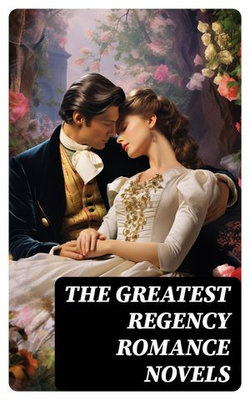The anthology "The Greatest Regency Romance Novels" captures the essence of love, society, and intrigue that defined the Regency era, bringing together a vibrant tapestry of narratives that span various literary styles. From the epistolary form to rich prose, these works explore the intricacies of relationships and social dynamics with finesse. Notable pieces within this collection unveil the complexity of courtship and the delicate interplay of duty and desire, offering readers timeless insights into the human condition. Through this compendium, the nuances of Regency life and its enduring appeal manifest vividly, inviting reflection on the period's cultural and literary landscape. The assemblage of luminaries such as Jane Austen, Fanny Burney, and William Makepeace Thackeray fortifies the anthology's exploration of romance during the Regency period. These authors, alongside others like Mary Wollstonecraft and Leo Tolstoy, enrich the collection with their diverse backgrounds and perspectives, each contributing uniquely to the discourse on societal norms and personal agency. Their works align with and illuminate important correlates of the era, tracing the historical and cultural movements that shaped thematic evolutions in romance literature. Together, their voices provide a multifaceted exploration of love and societal constraints. Readers are invited to delve into this meticulously curated anthology for an immersive journey through a pivotal era in literature. Alongside literary enjoyment, the collection offers educational richness, invoking a dialogue across narratives that can challenge and expand contemporary understanding of romance and relationships. This unique convergence of styles and insights presents a rare opportunity to engage with iconic Regency romances, ensuring the reader leaves with both an enriched appreciation of the past and a keener sense of its resonance today.




Share This eBook: